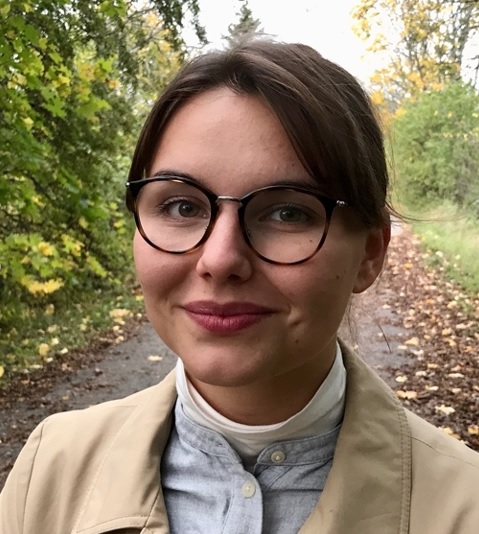We have a new PhD-student at the division! While the pandemic is still disrupting usual work routines, we are very happy that new people can nevertheless join us. Starting a PhD under these conditions in a new work environment is all but easy. Therefore, the division’s blog wants to continue introducing new people to make them more visible and to facilitate collaborations. Thus, Klara Müller was so kind to answer the following questions to introduce herself.
Could you please tell us a bit about yourself and the field(s) you are working on?
I am an historian of science and technology and started at KTH as a doctoral student in January 2021. I work within Making Universities Matter (MUM), a project devoted to studying how the blend of missions and tasks of universities has evolved over time.
I finished my Master’s  degree in The History of Science and Ideas at Uppsala University in June 2020. Previous to my Master’s I did a dual Bachelor’s degree in Media History and The History of Science and Ideas at Lund University. I have also studied archival science and was an exchange student at Utrecht University in 2019. My broader research interests relate to the history of humanities, history of bureaucracy, university history and the history of computing. Besides my studies, I have a far-reaching interest in research- and education policy.
degree in The History of Science and Ideas at Uppsala University in June 2020. Previous to my Master’s I did a dual Bachelor’s degree in Media History and The History of Science and Ideas at Lund University. I have also studied archival science and was an exchange student at Utrecht University in 2019. My broader research interests relate to the history of humanities, history of bureaucracy, university history and the history of computing. Besides my studies, I have a far-reaching interest in research- and education policy.
In my previous research, I have mainly focused on the history of the information infrastructure of hospitals, through studies on the media history of medical records and on computers in healthcare. My Master’s thesis “Computer Power and the Art of Medicine: The Introduction of Computer Technology in Swedish healthcare 1962 – 1968” examined how computers affected medical knowledge production. The study shows how physicians’ diagnostic assessment of patients was reformulated into binary language so that computers could interpret it, and discusses the implications this process had on which type of knowledge was created and used in medical practice.
My PhD project has a lot of similarities with my previous research interests, but focuses on a different topic – instead of medical knowledge, I am looking into knowledge created in humanities disciplines. This agenda can be grasped as research on the information infrastructure of knowledge in the humanities in Sweden from the latter half of the 20th century. Methodically, I will approach this object by studying how humanities research has been measured and valued, in relation to, for example, the introduction of bibliometrics. The overall purpose of the study is to investigate changes regarding what has been considered to be high-quality humanities research, in relation to processes such as digitalization, internationalization, bureaucratization and the expansion of higher education.
What do you work on right now? Is something in particular coming up?
I am currently working on my PhD project outline, trying to map out the field. I am also involved with the Division’s upcoming Biennial report, analysing publication data.
Since I am affiliated with the knowledge platform MUM, I get to participate in a lot of interesting research policy events. For example, MUM and Vinnova have organized a seminar on the latest research and innovation bill (more information can be found here).
Starting during the pandemic is challenging. What kind of impact do you feel that Covid-19 have on your work?
Since I knew that I would begin during the pandemic I guess I was able to adapt my expectations. But of course, it is not easy to be new at a workplace without the possibility of being there physically, without meeting people in person. And the feeling of a fresh start is difficult to achieve when you have been in the exact same apartment every day of the work week since March 2020. And it is, of course, not easy to plan for future courses, conferences and potential archival work, because of the uncertain future. Covid-19 has also led me to think a lot about how crucial cultural and historical knowledge is to understand societal reactions to crisis.
Thank you, Klara! Let’s hope we can all soon meet in person again.





No comments yet. Be the first to comment!